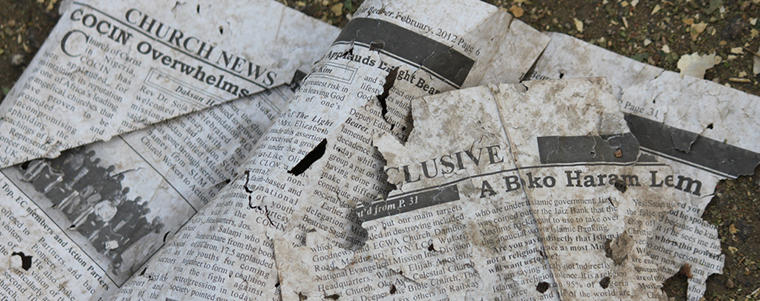A spate of attacks in northern Nigeria by the Islamic extremist group Boko Haram prompted the condemnation of U.S. Secretary of State John Kerry, as a new study reaffirms the role of poverty in encouraging youths to join the armed group.

In the latest assault, Boko Haram gunmen attacked a boarding school overnight, killing 29 students and burning the building to the ground, according to CBS News and Reuters. The group has waged similar attacks in the past, including at a village school in June and an agricultural college in September.
Two separate attacks took place last week in the northeastern Borno state, with some 100 people slaughtered in the fishing town of Bama and more than 100 killed in the mostly Christian fishing village of Igze.
The violence threatens to further destabilize Africa’s most populous country and top oil exporter, and some analysts have warned that hostilities may escalate in advance of presidential elections next year.
“Unspeakable violence and acts of terror like the ones committed by Boko Haram last week in northern Nigeria are horrific, wrong, and have no place in our world,” Kerry said in a statement issued on February 23, before the latest school assault.
The secretary of state reiterated the U.S.’s commitment to helping the Nigerian government combat the group, designated by the United States in November as an international terrorist organization.
“The people of northern Nigeria deserve to live free from violence and from terror. That’s why the United States is providing counterterrorism assistance to help Nigerian authorities develop a comprehensive approach to combat the threat posed by Boko Haram, while protecting civilians and ensuring respect for human rights.”
Last week’s attacks occurred just as Boko Haram released a video statement in which its self-proclaimed leader, Abubakar Shekau, threatened to bomb refineries in the oil-rich Niger Delta region and warned prominent Muslim politicians and clerics that they will be targeted for supporting democracy. He also vowed to destroy any schools wherever Boko Haram found them, according to news reports.
"The reason why I will kill you is you are infidels. You follow democracy. Whoever follows democracy is an infidel,” Shekau said, according to press reports.
USIP co-sponsored with the CLEEN Foundation a survey in northern Nigeria to determine why young Muslim men join Boko Haram; CLEEN released the results in Nigeria this month. According to the study, the three major factors for joining Boko Haram included unemployment and poverty, manipulation by extremist religious leaders and a lack of awareness of the authentic teachings of Islam. USIP will publish a more detailed summary of the survey this spring.
The origins, motives and operations of this shadowy organization are detailed in the 2012 USIP Special Report, What Is Boko Haram, by freelance journalist Andrew Walker.
“Boko Haram,” Walker wrote, “believes politics in northern Nigeria has been seized by a group of corrupt, false Muslims. It wants to wage a war against them, and the Federal Republic of Nigeria generally, to create a ‘pure’ Islamic state ruled by sharia law.”
Since its inception in 2009, Boko Haram – which roughly translates as "Western education is forbidden" --- has killed several thousand people, both Christian and Muslim.
A state of emergency was declared in Borno and two neighboring northern states last year, with thousands of extra troops sent to the region. Despite expanded military operations, Walker’s report suggests that military efforts alone will not resolve the conflict.
Former U.S. Ambassador to Nigeria John Campbell is quoted in the report as describing Boko Haram “’writ large’ [as] a movement of grassroots anger among northern people at the continuing deprivation and poverty in the north.”
Indeed, “[n]orthern Nigeria as a whole has very deep development problems, perhaps deeper than the rest of the country. It has some of the worst maternal and infant mortality rates in the world. The level of poverty and deprivation is higher than the rest of the country, while active participation in politics, beyond fealty to a thin band of political and religious godfathers who hold power, is low,” Walker wrote in his well-read and oft-cited report.
“The only way to remove the threat of the group in the long term is widespread reform of northern Nigeria that improves the livelihoods of northern Nigerians, and gives them a bigger stake in their politics.”



